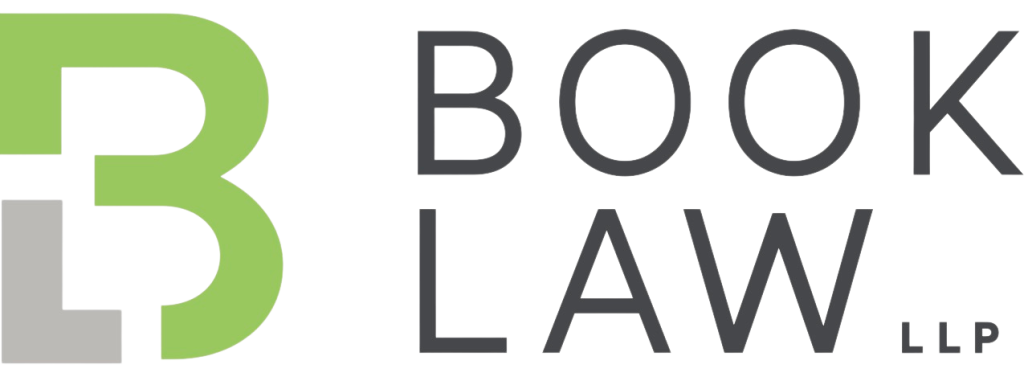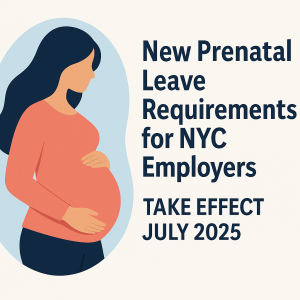On May 5, 2021, Governor Cuomo signed into law the New York Health and Essential Rights Act (the “NY HERO Act” or the “Act”), which is intended to prevent workplace exposure to airborne infectious diseases such as COVID-19. The Governor also announced that the New York State (“NYS”) legislature will amend the NY HERO Act to provide more specific guidelines for developing workplace standards and to provide employers with the opportunity to correct violations before employees may sue.
The NY HERO Act has two parts. The first part (i) directs the NYS Department of Labor (“DOL”) and NYS Department of Health (“DOH”) to issue standards for preventing workplace exposure to airborne infectious diseases; (ii) requires all employers to adopt plans that meet or exceed those standards, and distribute those plans to their employees; (iii) sets civil penalties for violations of the Act; and (iv) allows employees to sue employers who knowingly violate the standards. The second part requires employers with at least ten (10) employees to allow their employees to form a joint labor-management workplace safety committee (“Safety Committee”).
Definitions: The Act broadly defines “employee”, “employer” and “work site” as follows:
- “Employee” is defined to include full-time workers, part-time workers, independent contractors, domestic workers, home care and personal care workers, day laborers, farmworkers, workers at staffing agencies, contractors or subcontractors, and other temporary and seasonal workers.
- “Employer” means any person, entity, business, corporation, partnership, limited liability company, or association that hires and pays for the work of any NYS employee.
- “Work site” means any physical space deemed as the place for work to be performed, including vehicles and employer-provided housing and transportation.
Model Standards: The DOL and DOH must establish and publish model standards to prevent airborne infectious disease exposure (“Standards”) that take into account differences between industries, workplaces, risks, and exposure levels. The Standards must include, at minimum, procedures and methods for:
- Employee health screenings;
- Face coverings;
- Required personal protective equipment (“PPE”), protective clothing, respiratory devices, and protective shields and barriers, which must be provided to employees and maintained in a sanitary and reliable condition at the employer’s expense;
- Accessible workplace hand hygiene stations and adequate break times;
- Regular cleaning and disinfecting of shared equipment and frequently touched surfaces;
- Effective social distancing mechanisms for employees and third parties;
- Compliance with mandatory or precautionary orders of isolation or quarantine issued to employees;
- Compliance with proper air flow, exhaust ventilation, or other similar engineering requirements;
- Designation of at least one supervisory employee to enforce compliance with the Prevention Plan and any other federal, state, or local guidance to prevent the spread of airborne infectious diseases in the workplace;
- Compliance with any applicable laws, rules, regulations, standards, or guidance on notifying employees and other state or local agencies about potential exposure to airborne infectious disease at the work site;
- Verbal review of infectious disease standards, employer policies, and employee rights; and
- Anti-Retaliation requirements.
Prevention Plans: All NYS employers must either adopt the DOL’s Standards or create a written plan that is equivalent to or exceeds the minimum requirements of the Standards (the “Prevention Plan”).
Notice and Posting Requirements: Employers must provide their Prevention Plan to all employees upon the effective date of this Act, upon hiring, or after reopening after a period of closure due to COVID-19 or any other airborne infectious disease. Employers must also post their Prevention Plan in a visible and prominent location at the work site and include it in employee handbooks, if any. The Prevention Plan must be available in English and each employee’s primary language (if the DOL has issued model Standards in that language).
Anti-Retaliation: Employers must not discriminate or retaliate against their employees for (i) exercising their rights under the NY HERO Act or Prevention Plan; (ii) reporting to public officials violations of the Act or Prevention Plan; (iii) reporting to the employer or public officials concerns about workplace exposure to airborne infectious diseases; and/or (iv) refusing to work when an employee reasonably believes, in good faith, that the workplace exposes such employee and/or other workers to an airborne infectious disease due to any noncompliance with applicable laws, rules or Prevention Plan, after providing the employer with notice and an opportunity to cure the conditions.
Penalties: The DOL may impose civil penalties of $50 for each day an employer fails to adopt a Prevention Plan and between $1,000 and $10,000 if the employer fails to adhere to a Prevention Plan. If an employer commits more than one violation in six (6) years, the penalties may increase to $200 per day for not adopting a Prevention Plan, and between $1,000 and $20,000 for failing to adhere to the Prevention Plan.
Private Right of Action: Employees may sue their employer for alleged violation of the Prevention Plan that creates a “substantial probability that death or serious harm could result.” The employees may seek injunctive relief (e.g., an order stopping the employer from further exposing employees to infection in the workplace), liquidated damages up to $20,000, and reasonable attorneys’ fees. Employers may assert as a defense that they had a “good faith” basis to believe their workplace health and safety measures complied with the requirements of the Prevention Plan. Courts may impose sanctions on parties or attorneys who bring a claim or a defense in bad faith.
Workplace Safety Committee: Finally, employers with at least ten (10) employees must allow its employees to form a Safety Committee. At least two-thirds of the Safety Committee must be composed of non-supervisory employees. The Safety Committee will be permitted to (i) raise concerns to the employer about workplace health and safety to which the employer must respond; (ii) review and provide feedback on any workplace policy required by the NY HERO Act or the Workers’ Compensation Law; (iii) review any policy in the workplace that has been adopted by the employer in light of any law, rule, regulation, or other directive; (iv) participate in any government site visits related to workplace health and safety standards; (v) review any report filed by the employer about the health and safety of the workplace; and (f) regularly hold a meeting during work hours at least once per quarter. The Safety Committee must be co-chaired by a representative of the employer and a representative of the non-supervisory employees. Employers may not retaliate against employees for participating in the activities of the Safety Committee.
The first part of the NY HERO Act is scheduled to become effective thirty (30) days from the Governor’s signature (June 4, 2021) and the second part (creating Safety Committees) will take effect on the 180th day after the bill was signed into law (November 1, 2021).
The DOL is unlikely to require employers to form plans before the DOL issues its own model Standards. However, all NYS employers should review their current health and safety plans for COVID-19 and airborne infectious diseases, and prepare to adopt the DOL Standards or equivalent in order to comply with this new law and maintain safe workplaces. Because the definition of “employee” is overly broad, most NYS businesses will have to comply with this new law.
If you have any questions or concerns about the new NY HERO Act, please contact Chaim Book at cbook@mb-llp.com or Sheryl Galler at sgaller@mb-llp.com.

